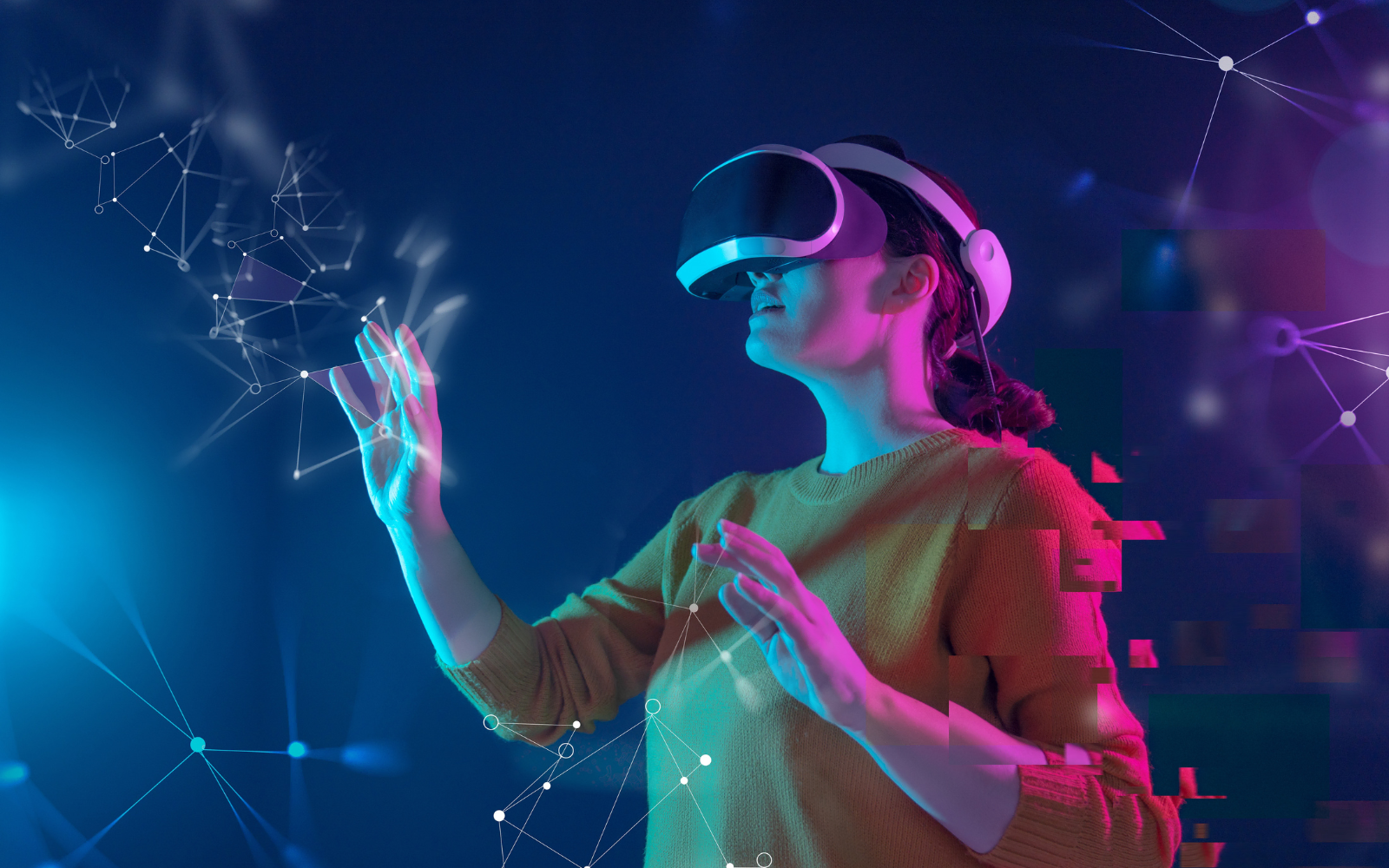In recent years, the concept of the Metaverse has transitioned from science fiction to a potential reality, raising profound questions about our identity and existence in virtual worlds. As technology advances and virtual environments become more immersive, the line between the physical and digital realms blurs, prompting us to consider the consequences of this technological evolution.

What is the Metaverse?
The Metaverse is a collective virtual shared space, created by the convergence of virtually enhanced physical reality and physically persistent virtual reality. It’s envisioned as a space where users can interact with a computer-generated environment and other users in a seemingly real or physical way.
The Promise of the Metaverse
Advocates of the Metaverse point to its potential to revolutionize communication, entertainment, education, and even work. Imagine attending a concert with friends from around the world, exploring historical sites in an interactive manner, or collaborating on projects in a virtual office space—all from the comfort of your home.
Losing Ourselves: A Digital Identity Crisis?
However, amid these promises lies a significant concern: will we lose touch with our physical reality and ourselves? As we spend more time in virtual environments, there is a risk of detachment from our physical bodies, surroundings, and even our sense of self.
1. Identity in Flux: In the Metaverse, individuals can create and manipulate their digital personas, blurring the distinction between real and virtual identities. This raises questions about authenticity and the impact on our self-perception.
2. Social Interaction: While the Metaverse offers new ways to connect, some worry it may replace genuine human interaction with superficial digital encounters. This shift could potentially isolate individuals from real-world relationships and emotions.
3. Ethical Concerns: Issues such as privacy, data security, and digital surveillance become amplified in the Metaverse. The control over personal information and the influence of powerful entities could reshape societal norms and values.
Navigating the Future
As we approach the next stage of the Metaverse, it’s crucial to consider how we can harness its benefits while mitigating potential risks. Here are some strategies:
1. Establishing Boundaries: Setting limits on screen time and balancing virtual interactions with real-world experiences can help maintain a healthy relationship with technology.
2. Promoting Digital Literacy: Educating individuals about digital identity, privacy rights, and responsible online behavior is essential for navigating virtual environments safely.
3. Ethical Development: Emphasizing ethical considerations in the design and implementation of Metaverse technologies can safeguard against potential harms and promote inclusivity.
Embracing the Evolution
Ultimately, the Metaverse represents a frontier of innovation and human creativity. By approaching its development thoughtfully and responsibly, we can harness its potential to enrich our lives while preserving what makes us uniquely human. As we embark on this journey into the digital realm, let’s ensure that we do not lose sight of ourselves along the way.
In conclusion, while the Metaverse holds the promise of a transformative future, it is imperative to approach its evolution with mindfulness and consideration for its impact on our identities and societies. By doing so, we can shape a future where technology enhances rather than diminishes our humanity.
